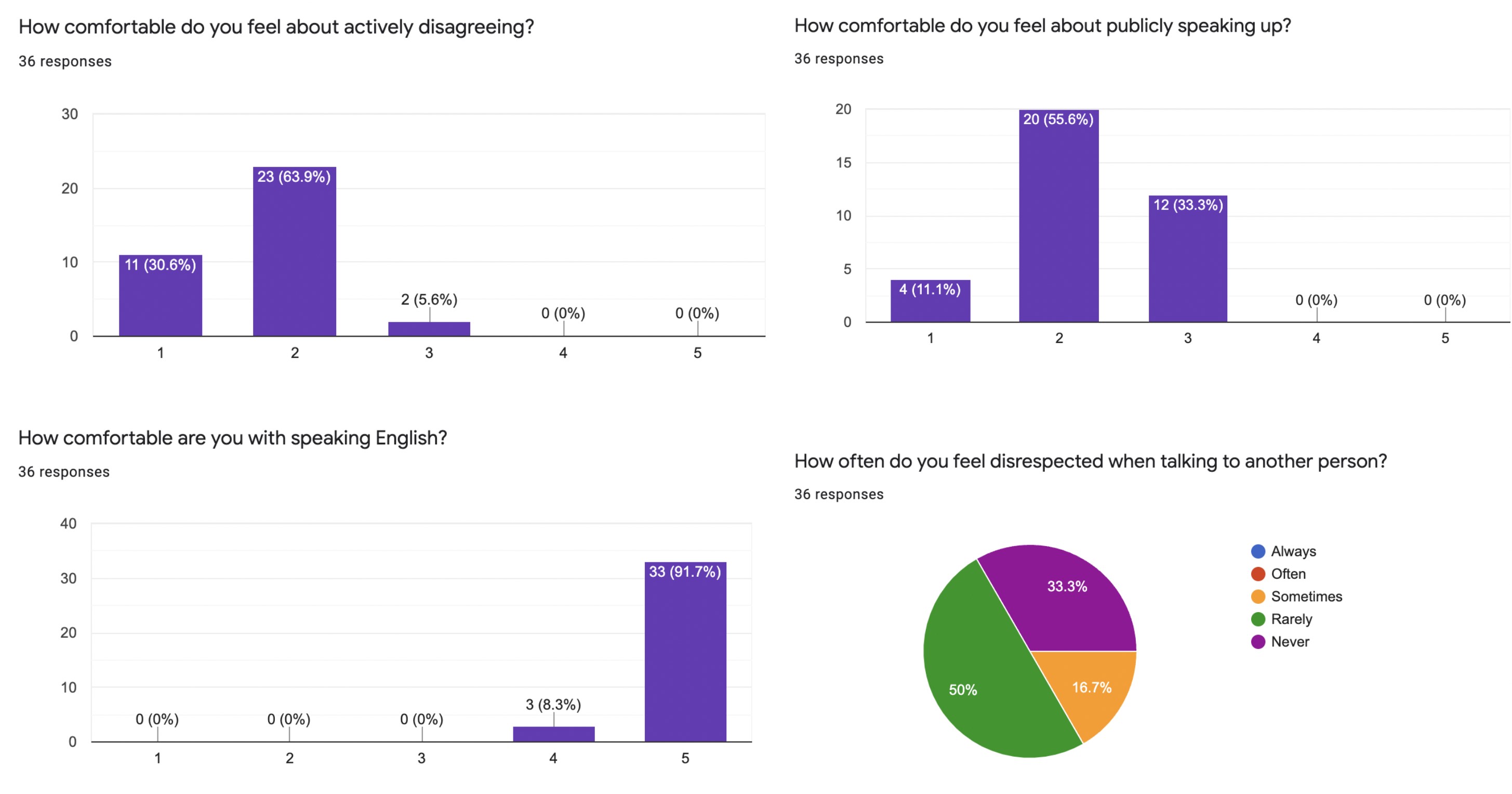
The results of a recent survey revealed that differences in conversational styles exist based on one’s culture and are difficult to change, even if one knows the language well. This survey was based on a study by Jasook Koo and Incheol Choi from Seoul National University and Richard Nisbett, Jeffrey Sanchez-Burks, and Fiona Lee from the University of Michigan that stated, “People from collectivist cultures (such as Koreans) have been shown to be more indirect than people from individualistic cultures (such as Americans).”
According to the research, the biggest contrast between the Western and Asian styles of conversation is the willingness to speak up and engage directly. In the Western style of conversation, people are more free to argue and voice their disagreement. In the Asian style of conversation, however, you must listen to the other speaker’s opinions carefully and wait for your turn to speak. And when you do speak, instead of actively engaging with the previous speaker, you are expected to simply voice your own opinion on the matter.
To determine whether this is true, a survey was sent out to students of international schools in South Korea. The purpose of this survey was to determine whether these conversational differences actually existed. The students, who speak English as well as native speakers do, were asked questions designed to check whether they still spoke in the Asian conversational style.

The results of the survey confirmed the existence of conversational differences between cultures. All of the respondents stated that they were comfortable or very comfortable with speaking English, showing that they knew the language well.
However, despite these results, 55.6% of the respondents felt uncomfortable with actively speaking up, and the rest felt either neutral or very uncomfortable with it. None of the respondents stated positively that they were comfortable with speaking up. Moreover, 63.9% of the respondents stated that they were uncomfortable with actively disagreeing with others, and 30.6% said that they were very uncomfortable with doing so.
What do these results mean? They show that, despite how comfortable they were with speaking the English language, students were still uncomfortable with abiding by the Western style of conversation and actively speaking up. Knowing a certain language does not mean that one can follow all of the implicit conversational rules in the culture. Because most of the survey respondents were Korean and lived in Korea, an Asian culture, they may find it challenging to change their style of conversation.
Furthermore, the results revealed a positive correlation between time spent studying in an international school and the level of comfort with speaking up. The students who had studied at their school for an average of two to three years responded that they were uncomfortable with speaking up and very uncomfortable with disagreeing. However, the students who had studied for eight or more years responded that they felt neutral about speaking up and only slightly uncomfortable with disagreeing.
This shows that the longer one studies in a Western environment, the more accustomed one gets to the Western style of conversation, proving that these differences in conversational rules do exist. It also shows that the difficulties of learning a new culture of conversation can be surmounted through experience and gradual learning.
These two conclusions were inevitably reflected in the school environment that the speakers created. About 50% of the respondents stated that they rarely felt disrespected, and 33.3% stated that they never felt disrespected. This is only natural for people who are used to the Asian rules of conversation, where people rarely disagree with one another.
The results of this survey reveal that the differences in conversational styles found by the recent study do exist, even though we may not recognize that they do. Also, it can be much more challenging to learn these styles of conversation than to learn the language itself; all you can do is get used to cultural styles gradually through experience.

Karen Lee
Grade 9
Chadwick International

